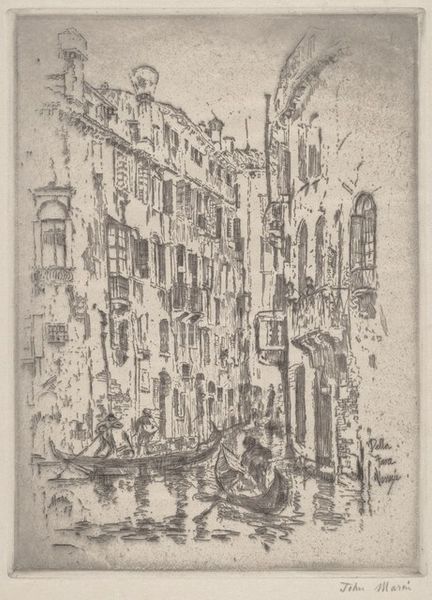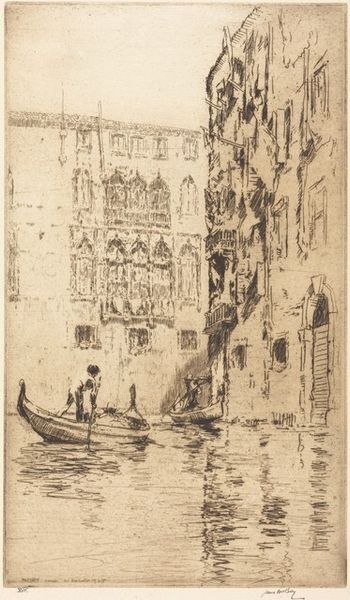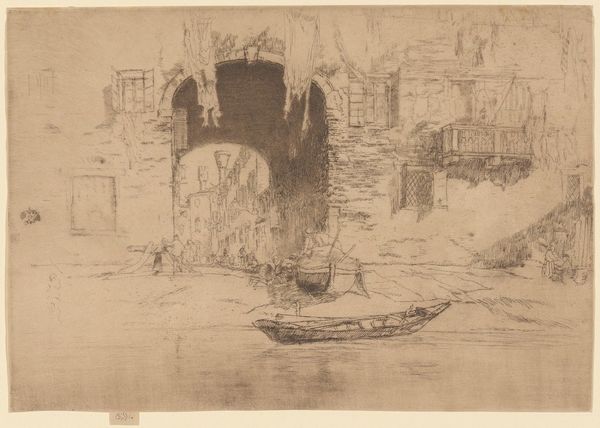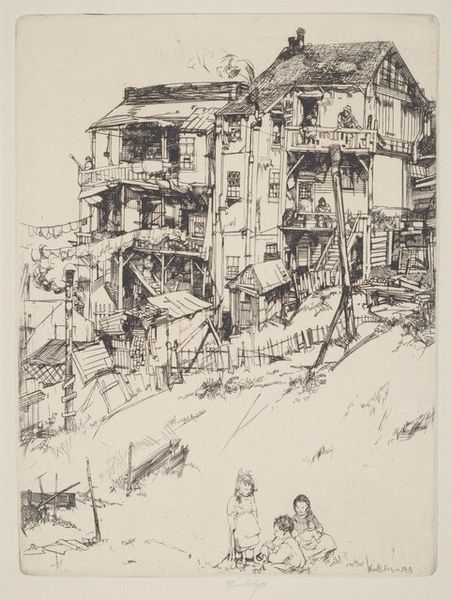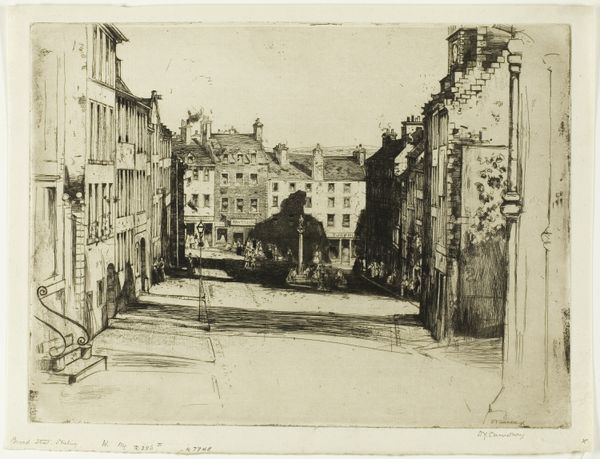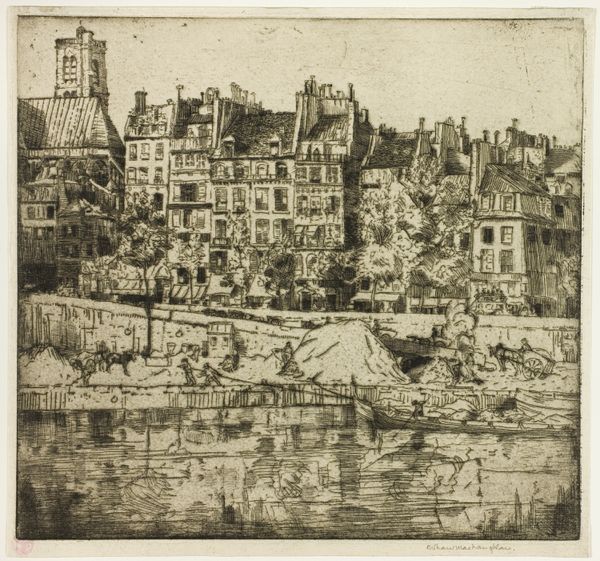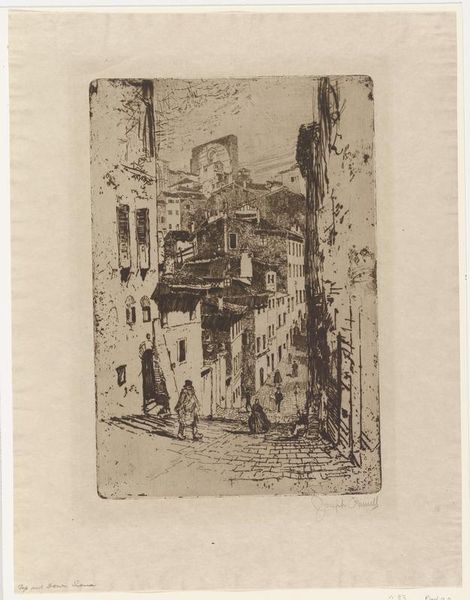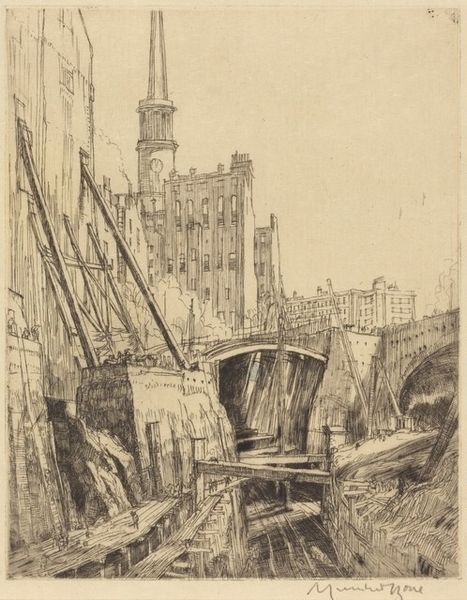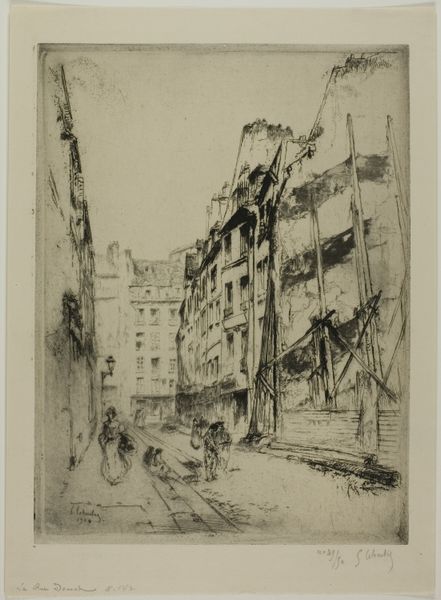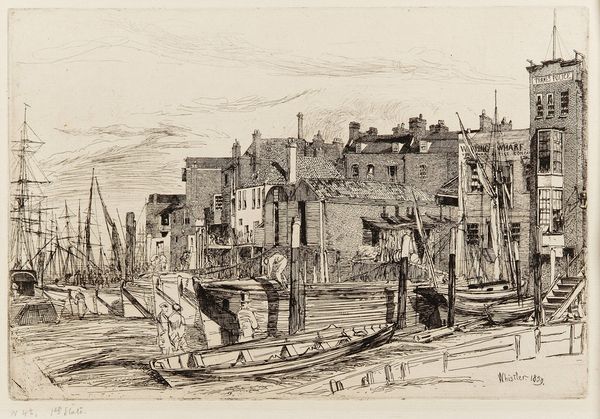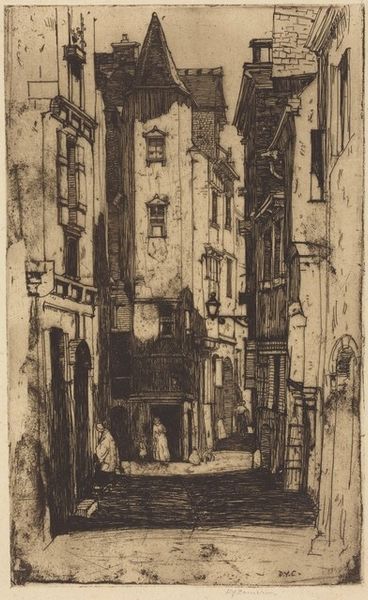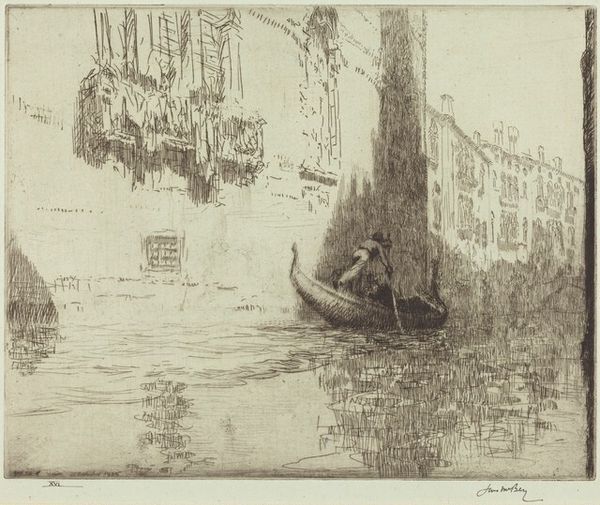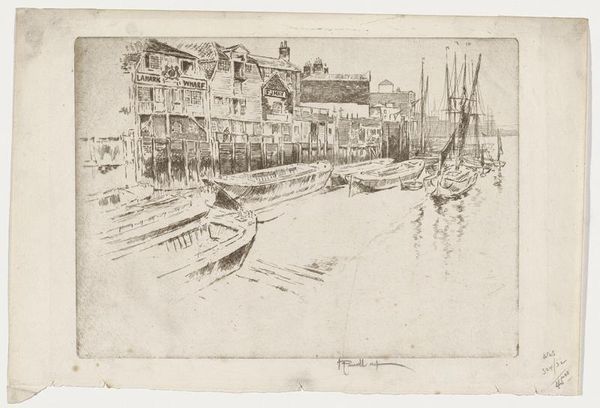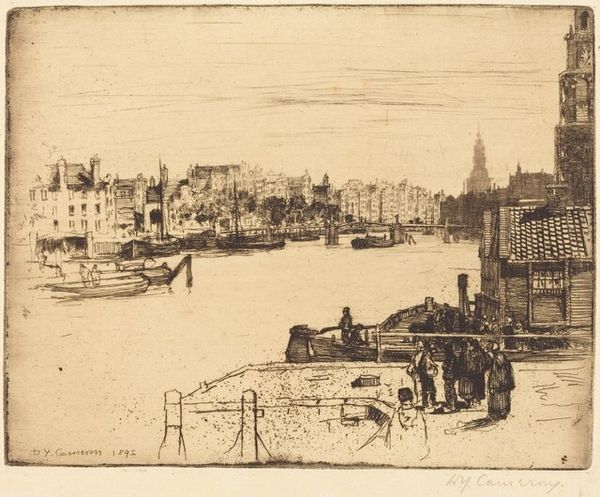
print, etching
#
dutch-golden-age
# print
#
etching
#
landscape
#
cityscape
#
realism
Copyright: National Gallery of Art: CC0 1.0
This etching, Corner in Amsterdam, was made by David Young Cameron using a metal plate, acid, and ink. The final print is a testament to Cameron's skill in manipulating these materials and processes. The network of fine lines create a detailed urban landscape. The etching process involves coating a metal plate with a waxy, protective layer, drawing an image through it, and then exposing the plate to acid. The acid bites into the exposed metal, creating grooves that hold ink. Cameron's choice of etching gives the image a unique texture and depth, and the tonal range achieved through varying line densities, captures the atmospheric quality of the Amsterdam canal. Etching as a printmaking technique allowed for multiple impressions to be made, making art accessible to a wider audience. It speaks to the democratization of art production during the late 19th century, reflecting shifts in labor, politics, and consumption, challenging traditional notions of artistic value and originality.
Comments
No comments
Be the first to comment and join the conversation on the ultimate creative platform.
